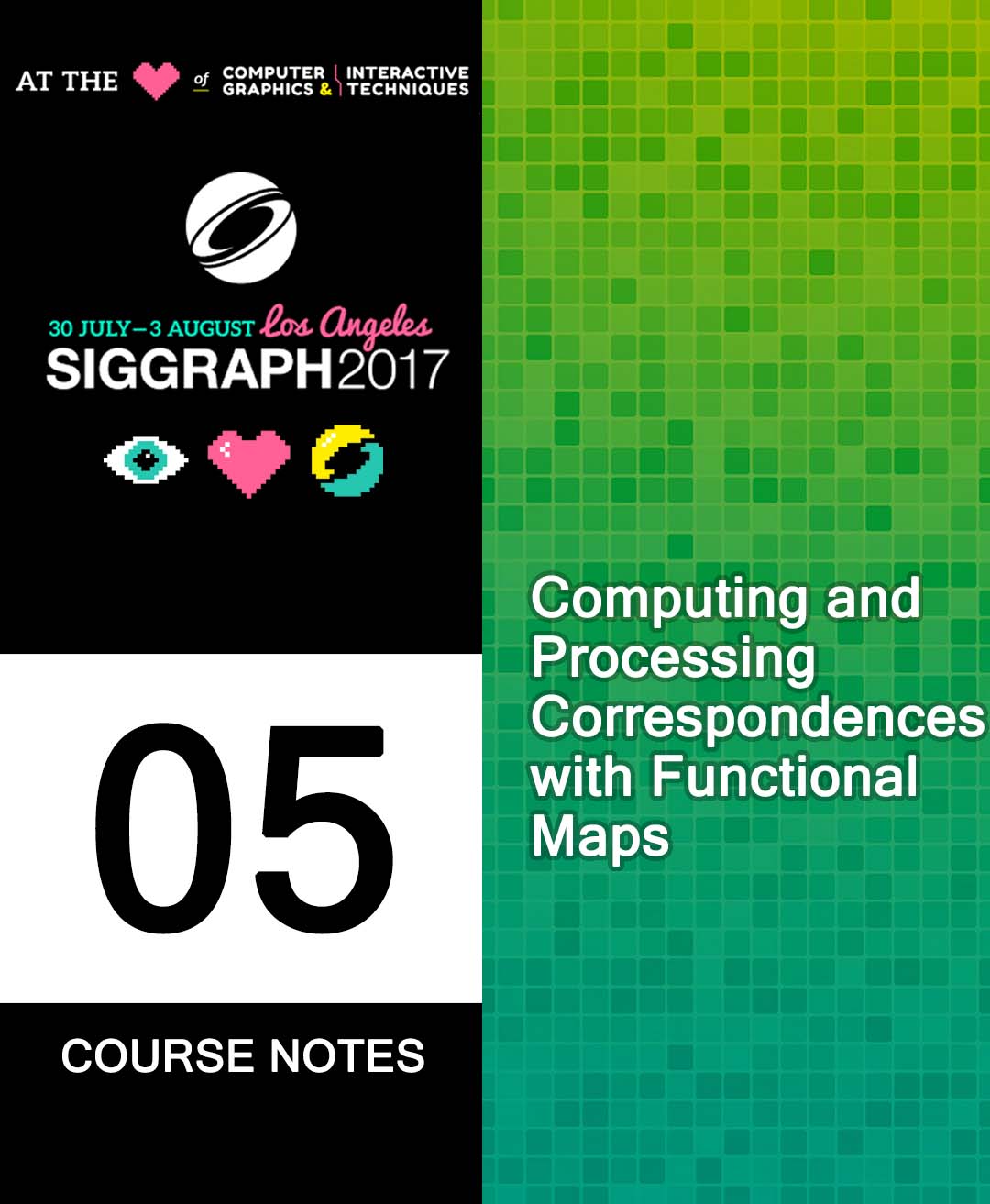“Computing and Processing Correspondences With Functional Maps” by Bronstein, Rodolà, Guibas, Ben-Chen, Corman, et al. …
Conference:
Type(s):
Entry Number: 05
Title:
- Computing and Processing Correspondences With Functional Maps
Course Organizer(s):
Presenter(s)/Author(s):
Abstract:
Prerequisites
A good understanding of the basics of linear algebra and some experience with manipulating geometric objects such as surfaces represented as triangle meshes.
Level
Intermediate
Who Should Attend
Researchers in computer graphics, geometry processing, and computer vision who are interested in problems related to correspondences between geometric datasets. Practitioners in these areas who are interested in applying and testing methods for correspondence finding in their specific settings.
Description
Concepts of similarity and correspondence between geometric shapes and images are central to many tasks in geometry processing, computer vision, and computer graphics. This course summarizes a set of recent techniques that greatly facilitate computation of mappings or correspondences between geometric datasets, such as 3D shapes or 2D images by formulating them as mappings between functions rather than points or triangles. Methods based on this functional map framework have recently led to significant progress in problems as diverse as non-rigid shape matching, image co-segmentation, and tangent vector-field design. One challenge in adopting these methods in practice, however, is that their exposition often assumes a significant amount of theoretical background, which can make it difficult to understand their applicability to real-life problems. The course addresses this challenge with detailed discussion of the functional approach to finding correspondences between non-rigid shapes, design and analysis of tangent vector fields on surfaces, consistent map estimation in networks of shapes and applications to shape and image segmentation, and shape variability analysis.




